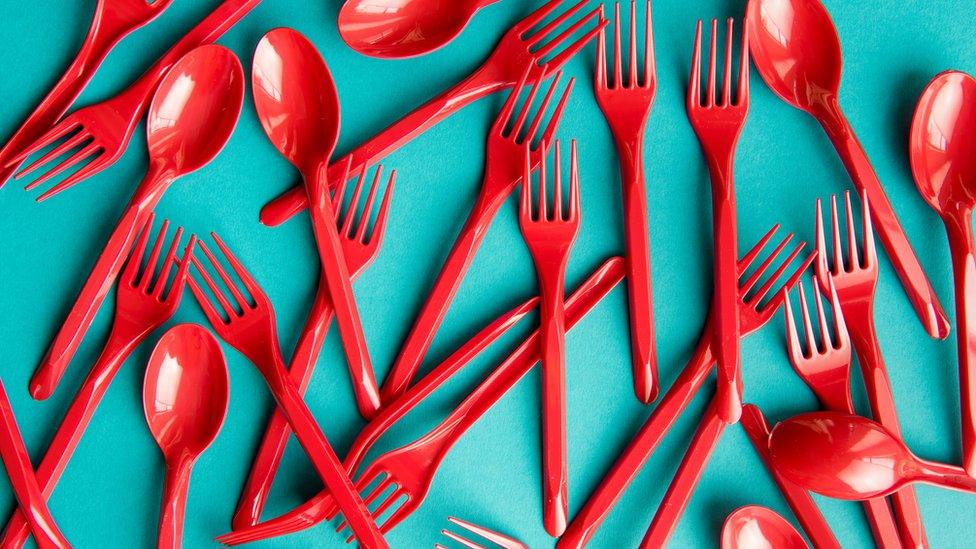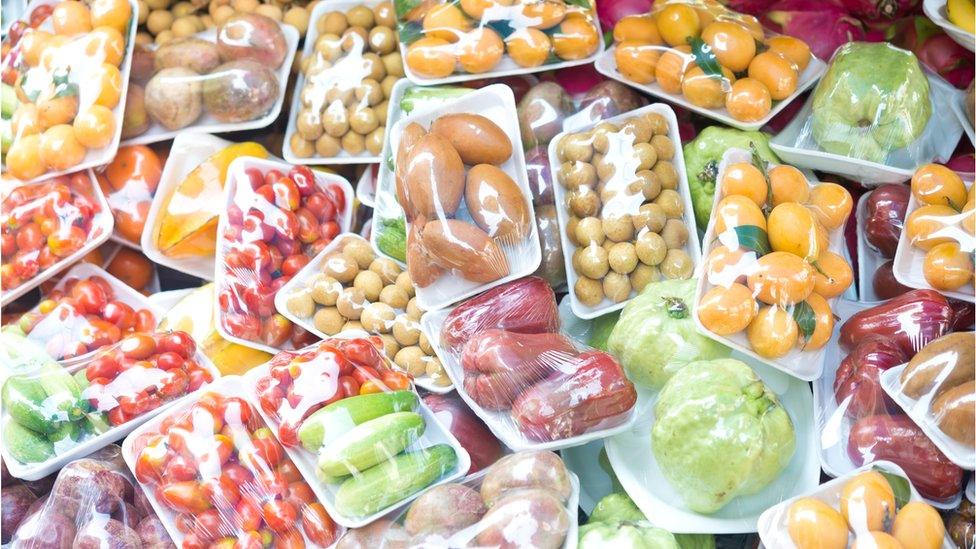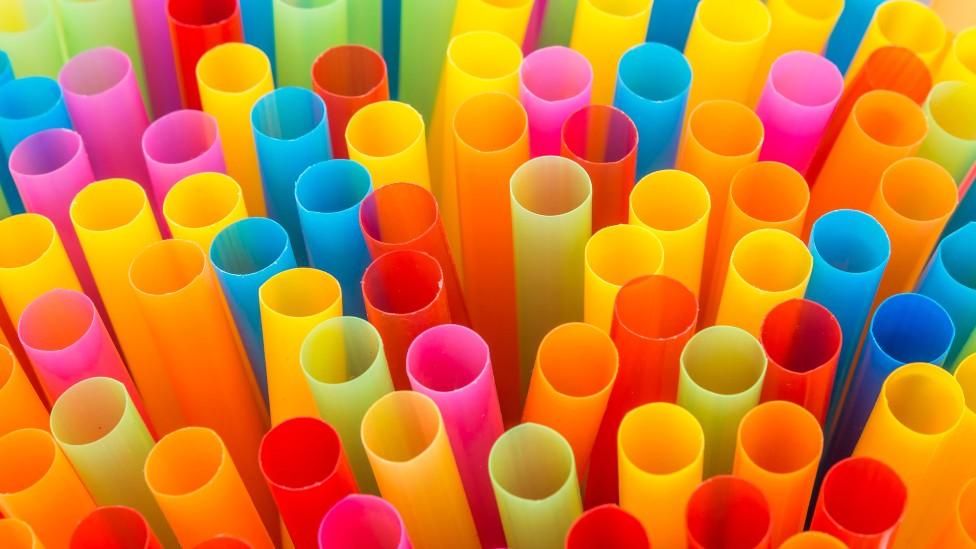Government to ban single-use plastic cutlery
- Published

The government has announced plans to ban single-use plastic cutlery, plates and polystyrene cups in England as part of what it calls a "war on plastic".
Ministers said the move would help to reduce litter and cut the amount of plastic waste in oceans.
A consultation on the policy will launch in the autumn - although the government has not ruled out including other items in the ban.
But environmental activists said more urgent and wider action was needed.
Scotland, Wales and Northern Ireland already have plans to ban single-use plastic cutlery, and the European Union brought in a similar ban in July - putting ministers in England under pressure to take similar action.
On average, each person in England uses 18 single-use plastic plates and 37 single-use plastic items of cutlery every year, according to government figures.
Ministers are also hoping to introduce measures under its Environment Bill, external to tackle plastic pollution - such as a deposit return scheme on plastic bottles to encourage recycling and a plastic packaging tax - but this new plan would be an additional tool.
The Environment Bill is going through Parliament and is not yet law.
A consultation on the deposit return scheme proposal for England, Wales and Northern Ireland , externalfinished in June.
Environment Secretary George Eustice said everyone had "seen the damage that plastic does to our environment" and it was right to "put in place measures that will tackle the plastic carelessly strewn across our parks and green spaces and washed up on beaches".
He added: "We have made progress to turn the tide on plastic, banning the supply of plastic straws, stirrers and cotton buds, while our carrier bag charge has cut sales by 95% in the main supermarkets.
"These plans will help us stamp out the unnecessary use of plastics that wreak havoc with our natural environment."
'Tip of the iceberg'
But the ban may take over a year to become law, with legislation needing to go through Parliament, and it is understood it could be April 2023 before it comes into force.
Campaigners have urged the government to move quickly.
Jo Morley, from the campaign group City to Sea, told the BBC she welcomed the news but it was "just the tip of the iceberg".
She added: "We need the government to go much, much, much further, we are facing a plastics crisis and we need to turn off the tap.
"We are really facing an environmental crisis, our oceans are full of plastic, and they're killing marine life, they are damaging our eco-systems and they are actually threatening human health."
Kierra Box from Friends of the Earth echoed the concerns.
She said: "We need government to take an overall approach to say that what we are going to do is bring an end to all plastic pollution, and what we're going to do is drastically reduce the amount of all single-use products, not just a fork followed by a spoon followed by a cup."
Related topics
- Published23 July 2020

- Published1 October 2020
